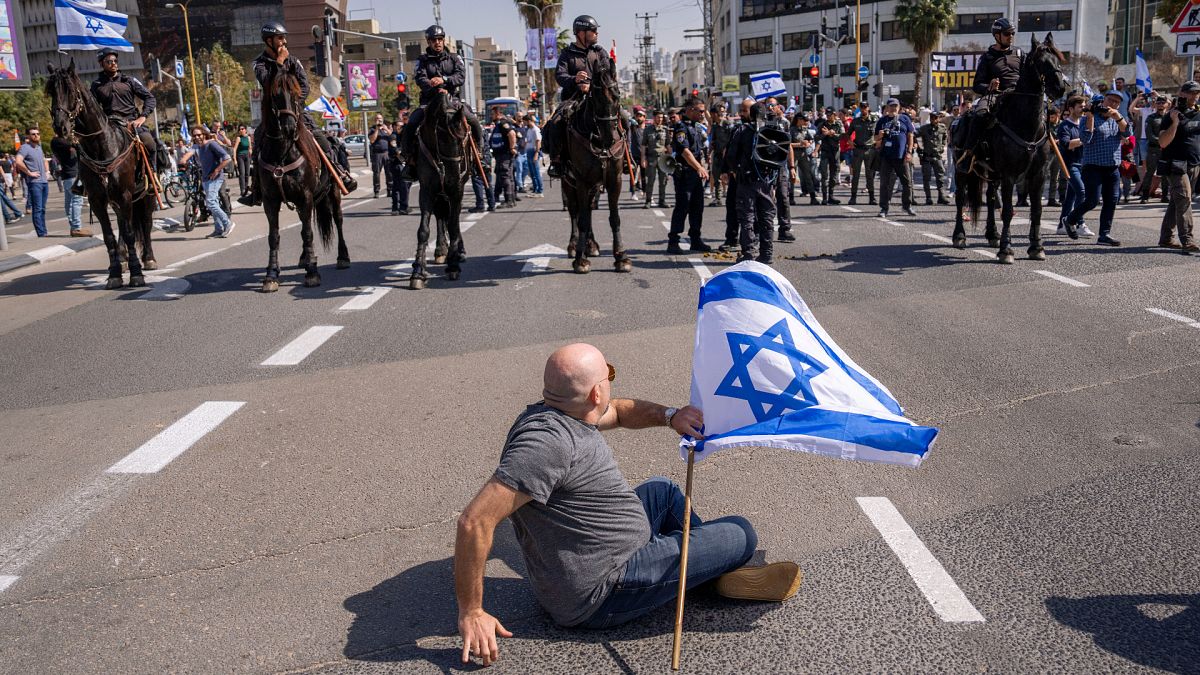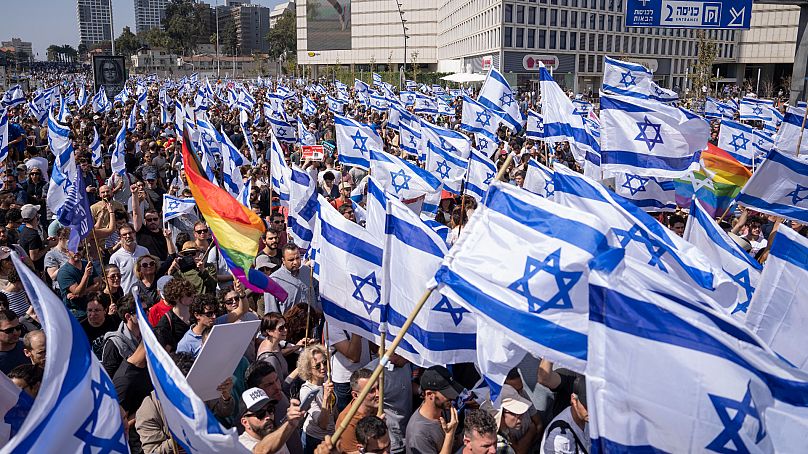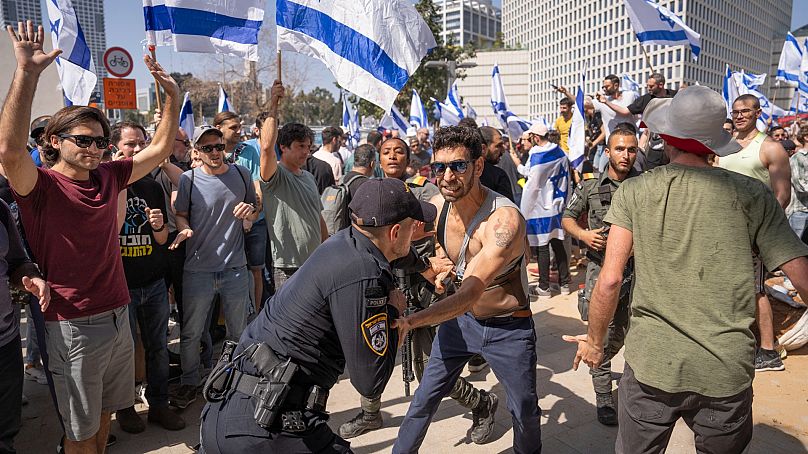At least 39 protesters were arrested in Tel Aviv during a 'national disruption day' against the government’s plan to overhaul Israel's judicial system
Police in Israel fired stun grenades and a water cannon at demonstrators in Tel Aviv during a nationwide "day of disruption" against the government's controversial plan to overhaul the country’s judicial system.
Earlier Wednesday, protesters blocked Tel Aviv’s main freeway, halting rush hour traffic for about an hour. Police said they arrested 39 protesters for disturbing the peace while 11 people were hospitalised, according to the city’s Sourasky Medical Centre.
“Every person [at the demonstration] is trying to keep Israel a democracy and if the current government will get its way, then we are afraid we will no longer be a democracy or a free country,” Arianna Shapira, a protester in Tel Aviv, said.
“As a woman, as a mother, I’m very scared for my family and for my friends.”
The protest follows weeks of demonstrations against moves by Prime Minister Benjamin Netanyahu’s government to limit the power of the country’s Supreme Court which gives lawmakers sway in the appointment of judges.
Netanyahu argues the move is meant to reduce the influence of unelected judges.
But critics argue that it would push the country toward authoritarian rule and has a clear conflict of interest in targeting judges as Netanyahu stands trial on corruption charges.
Others have argued it could lead to economic turmoil, as the value of the shekel has already neared a three-year low against the dollar. Israel’s international allies have also expressed concern about the health of the country’s democracy.
National Security Minister Itamar Ben-Gvir, an ultranationalist, has vowed to take a tough stance against protesters. He called on police to prevent the road blockages and he labelled the demonstrators “anarchists.”
Netanyahu said Ben-Gvir had his full support. “We will not tolerate violence against police, blocking roads and blatant breaches of the country’s laws. The right to protest is not the right to anarchy,” he said.
Netanyahu also blamed opposition leader Yair Lapid for fomenting anarchy. Lapid, in turn, has called on police to show restraint when dealing with demonstrators and said Netanyahu’s government had lost control.
“The protesters are patriots,” Lapid tweeted. “They are fighting for the values of freedom, justice and democracy. The role of the police is to allow them to express their opinions and fight for the country they love.”
According to the overhaul’s main architect Justice Minister Yariv Levin, lawmakers intend to move the judicial bills into law in the coming month.




